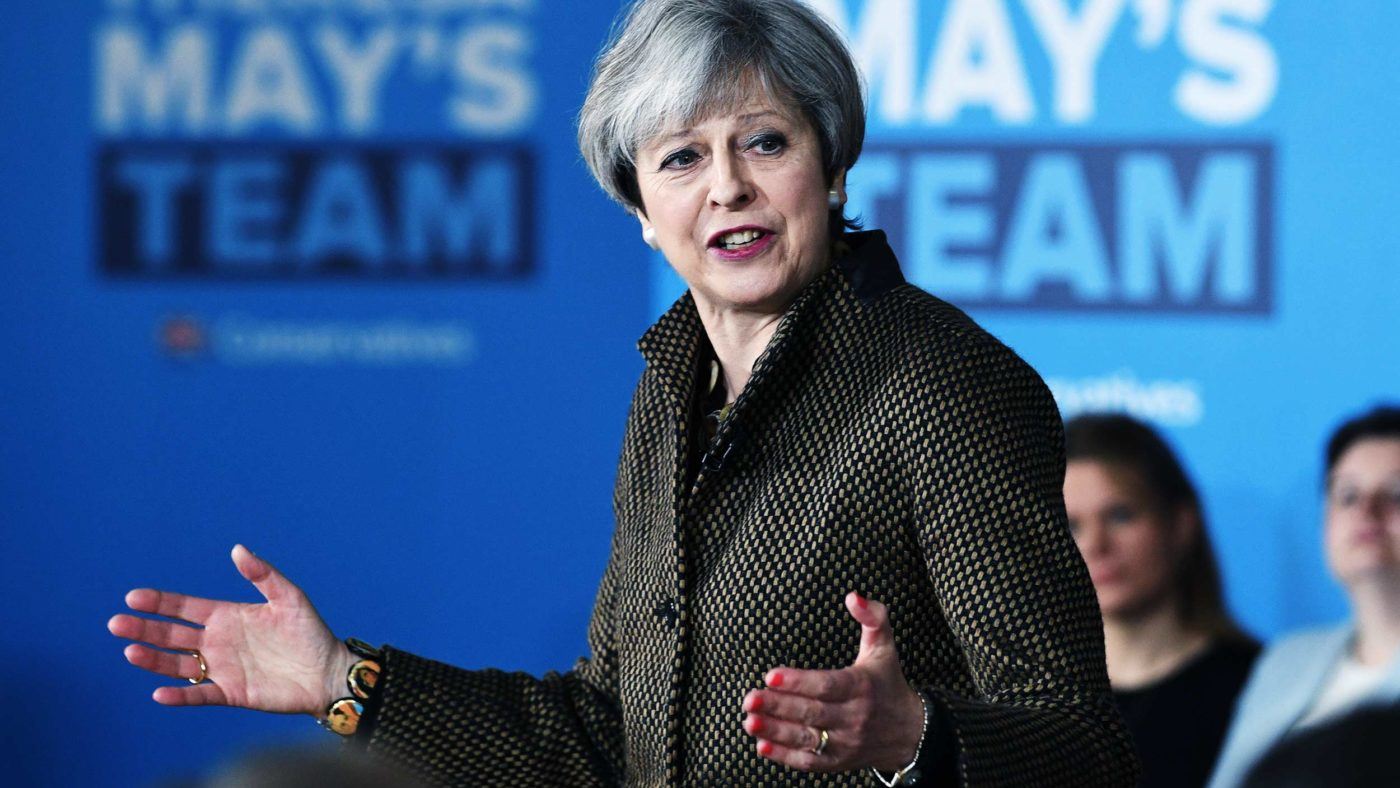Theresa May is a famously sphinx-like politician. And like the sphinx, she poses a riddle. Is she the most Left-wing Tory leader since Macmillan? Or the first true Conservative in a generation?
With the publication of the Tory manifesto last week, the commentariat claimed to have cracked her code. Mrs May, they announced, is Britain’s first “post-Thatcher” prime minister.
It is certainly true that Britain itself may be in a post-Thatcher era. The consensus behind economic openness, globalisation and (Tony Blair’s contribution) socially-minded liberalism has begun to fray. Theresa May, as a political strategist, understands this shift perhaps better than anyone. Alongside the Corbyn factor, it is why she finds herself headed for a landslide.
Yet Theresa May, as a politician of ideas, is emphatically not post-Thatcher. In fact, almost nobody is. Jeremy Corbyn is, if anything, pre-Thatcher.
The problem is that, for all the combined political appeal of the “Red Tory” and “Blue Labour” movements, there is one great big hole in their thinking. They don’t have an economic policy.
Take Brexit. As it stands, the macro-economic debate is completely dominated by two contrasting positions.
One is that leaving the single market represents an unqualified disaster, at least in the short term, and we must mitigate the damage by “softening” Brexit as much as possible. The other is the Daniel Hannan, Singapore-on-steroids vision of Britain as a low-tax, high-trade bastion of buccaneering free-market deregulation.
Each of these alternatives have their advocates. Yet neither prioritises the rapid reduction of immigration that Mrs May apparently seeks to achieve. Nor would they entertain, even for a second, the idea that state aid and protection could come close to replacing the output lost to declining free trade.
As for the idea Britain should be chasing away direct foreign investment, for example via tougher takeover restrictions? Forget about it – not least since Bank of England evidence shows that such investment is the best way to improve Britain’s abysmal productivity levels.
The Conservative manifesto did not nakedly contest these principles of economic openness. But nor did it really try to articulate a convincing third way. What we were offered instead was some Ed Miliband-lite nostrums on the general benevolence of government.
Now, there may be something to be said for the government recognising its responsibility to promote effective corporate governance, strong consumer protections and an active industrial policy. But as a way to reimagine Britain’s place in the world, let alone challenge a supposedly defunct economic orthodoxy, it falls woefully short. Indeed, once you price in the psychological shock of a Conservative prime minister making them, the actual proposals – with their very modest levels of state intervention – look a bit run-of-the-mill.
Yet what these proposals do say something about is Britain’s intellectual poverty. For one thing, the Tory manifesto has effectively expunged the market from any role in social policy.
You do not need to be a free marketeer to worry about this: a lack of pluralism is always bad for democracy. Besides which, the market can be an extremely effective servant of social justice: just look at Syed Kamall’s proposals, for the Richard Koch Breakthrough Prize essay competition, on micro-finance. Or the extraordinary technological revolution in renewables that, if the state allows it, could completely destroy the centralised power generation industry within the next two decades.
Britain does need a new economic consensus. And Brexit could, in theory, provide an unheralded opportunity to chart a different course. Yet the fact that we have spent the past four days embroiled in a row about a social care policy which, either way you cut it, is a marginal improvement on the status quo tells a quietly damning story about the lack of economic ambition on display at this election.
The question that should really be occupying Britain’s political class post-Brexit is the one beautifully captured in Oliver Wiseman’s report for CapX from Ebbw Vale: what future is there for such communities in a global economy? How do we create wealth in a way that offers them both dignity and economic security?
The Left has now reverted to its default answer of “redistribution plus state expansion” – a formula that that, whisper it quietly, unites both Blair and Corbyn. Yet beyond greater fiscal restraint, it is not all clear from their manifesto whether the Conservatives can offer anything different. Until they – or someone else – can, the wait for a post-Thatcher prime minister will go on.


